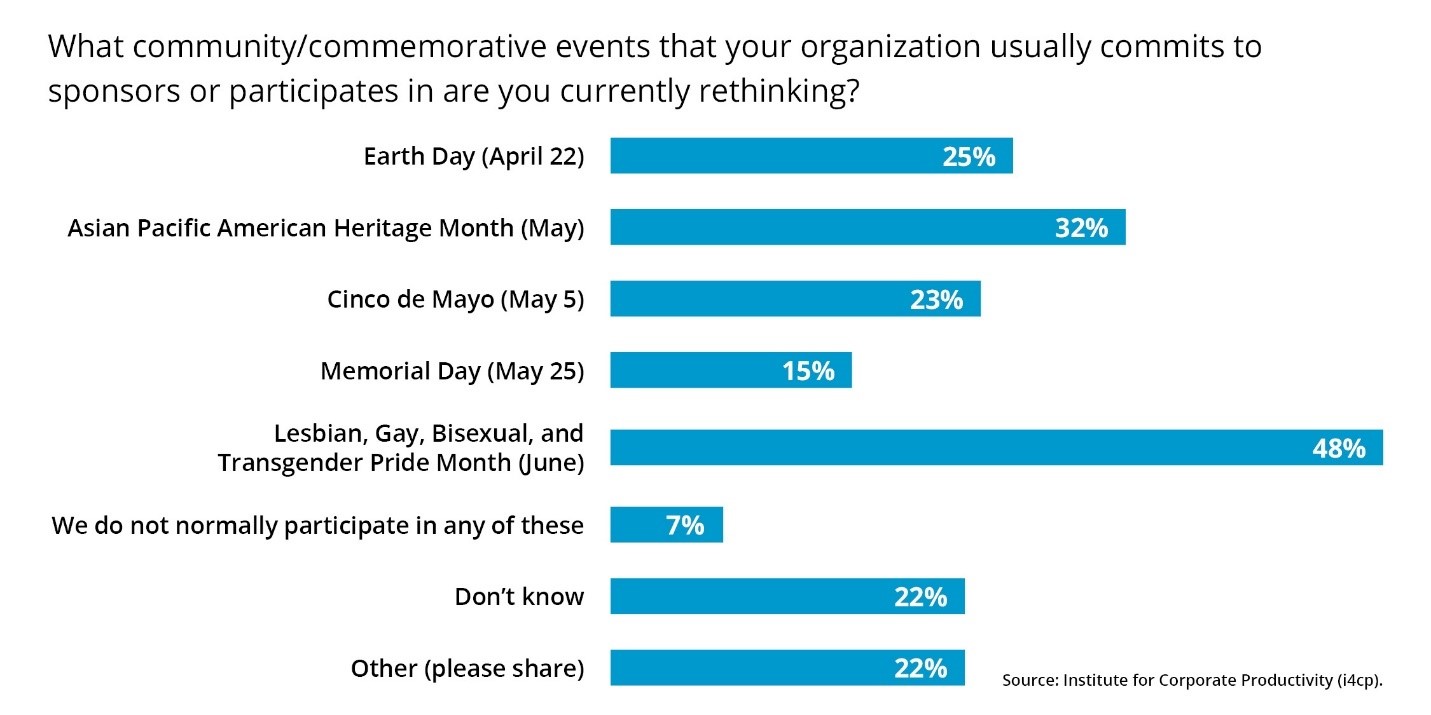Will COVID-19 Mean the End of the Rainbow for 2020 Pride?

One of the most visible, engaging, and meaningful ways organizations demonstrate their commitment to inclusion, diversity, and equity is participation in annual Pride observances each year.
Such events range worldwide from hugely attended parades (the 2019 New York City Pride March drew five million attendees) to festivals, celebrations, and extensive multi-platform pride-related marketing campaigns.
Companies prize the opportunity this unique event offers them to connect to LGBTQIA communities both inside and outside their walls. Pride event participation is well known to boost engagement, morale, and talent attraction for companies that have high profiles in related happenings each year.
Such participation usually involves financial investment too—substantially so for some employers—with companies providing corporate sponsorship, parade floats, and special Pride-branded products and other giveaway swag each year.
But this year will very likely be different.
Among the diversity and inclusion leaders polled by the Institute for Corporate Productivity (i4cp) last week, nearly half (48%) said that their organizations are currently rethinking their plans for Pride month (June) as a result of the COVID-19 coronavirus pandemic.
Pride isn’t the only annual cultural event that celebrates inclusion and diversity in the spring and summer of each year facing major changes—Asian Pacific American Heritage Month and Cinco de Mayo, both of which are observed in May were also cited as events that companies are rethinking.
Most organizations say that they definitely want to continue to support these events but are exploring how to do so virtually this year. What form that might take and what it will look like remains to be seen.
We also encourage you to visit i4cp.com/coronavirus for other employer resources including discussion forums, next practices, useful resources, and more.






